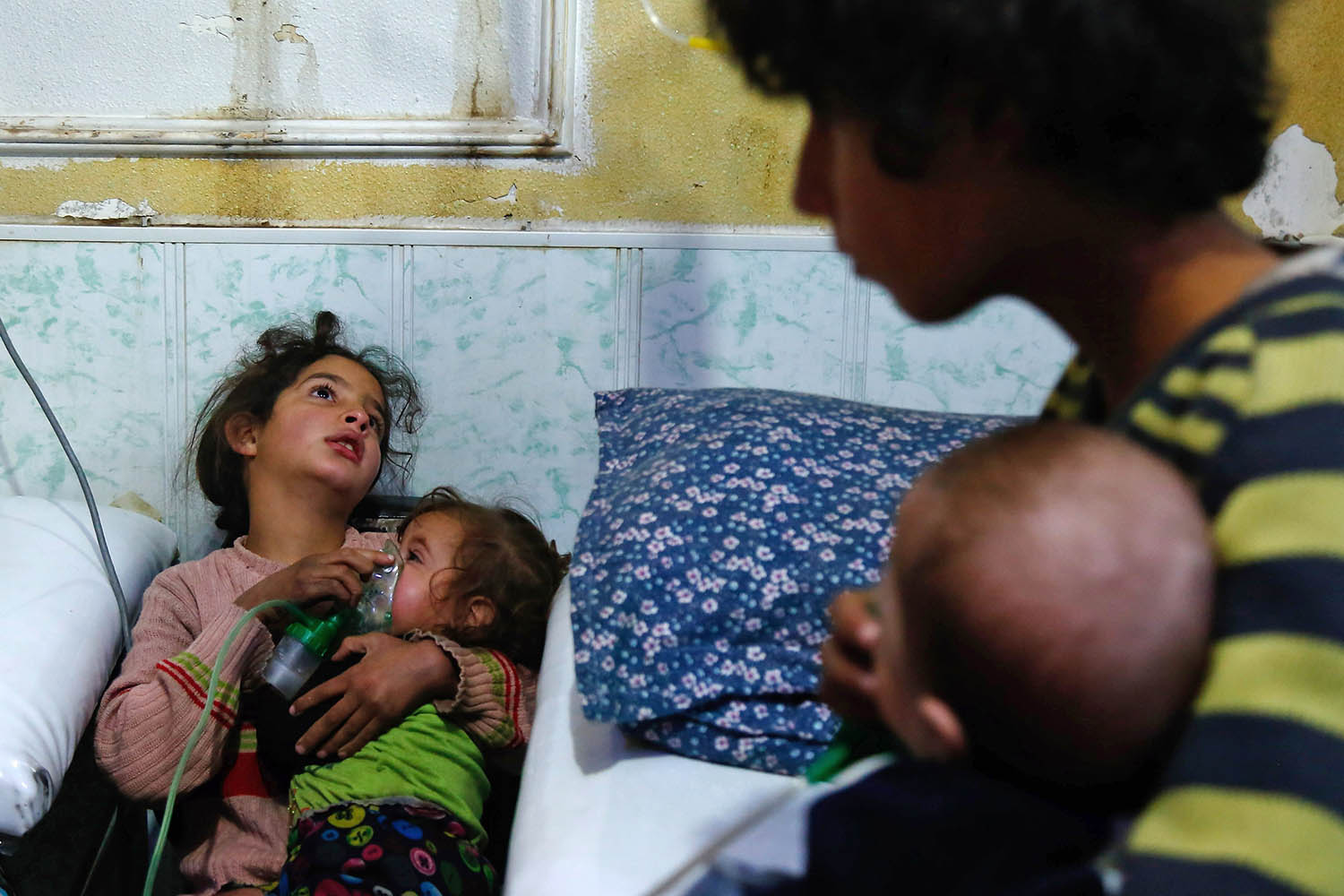
- Denmark and the Netherlands confirmed plans to send F-16 fighters to Ukraine.
- Hilary became the first tropical storm to hit California in 84 years.
- Spain beat England 1-0 to win the women’s World Cup (more below).
Ten years ago, in the early hours of 21 August 2013, President Basher al-Assad’s forces sent rockets carrying sarin gas into an opposition-controlled area on the outskirts of Syria’s capital Damascus.
So what? History does not move in straight lines. But if you were to choose one point that heralded the era of impunity that autocrats enjoy today, the Ghouta chemical weapons attack is when the old standards came crashing down.
The tasteless, invisible nerve agent spread silently. Children in their pyjamas started to foam at the mouth, paralysed in agony. Then their lungs stopped working. More than 1,400 people died.
What followed. A week after the attack, Ed Miliband’s Labour Party and Tory rebels blocked a parliamentary vote for UK military intervention.
- Without the British onside and with the catastrophe of Iraq weighing on American minds, Barack Obama lost his nerve.
- His “red line” on chemical weapons use in Syria evaporated and he opted for punitive diplomatic measures instead. Russia jumped in and offered to disarm Syria’s chemical arsenal.
- Both Moscow and Damascus then launched huge disinformation campaigns to discredit witnesses and investigators.
From 2013 to 2019, there were around 300 documented chemical weapon attacks in Syria – about one every six days – according to Global Public Policy Unit. No one has ever been indicted or stood trial for the chemical attacks and Russia has vetoed any serious action against its ally.
The attack cemented Assad’s position as an international pariah. A decade on, he has been welcomed back into the Arab League and will be glad handing delegates at Dubai’s Cop28 in November, as regional powers look to send Syrian refugees home and contain Syria’s export of the highly addictive drug captagon (see: Butcher of Syria).
So far, neither of these objectives looks close to being achieved, writes analyst Charles Lister, as
- Russia has vetoed an extension of cross-border aid into northwest Syria; and
- resumed airstrikes in northwest Syria for the first time since November 2022, and
- Assad says privately he will not engage with a UN-run committee that seeks negotiations between Assad and the Syrian opposition.
I am not as I was. Dr Mohamad Katoub, a Syrian dentist, was one of the first responders in Ghouta in 2013. “We prepared for hundreds of people coming to the medical centre, but thousands came,” he says. “In the end, many patients were delivered in farmer’s trucks. They were trying to help, but no one had any protective equipment.”
Katoub says that while there have been numerous investigations, the world has focused on getting rid of Assad’s chemical weapons rather than on accountability for the attack.
“The message for any other dictator is you can use chemical weapons, and the only thing other governments care about is the weapon arsenal itself,” he says. “When you do nothing, you send a message to dictators that you can do more.”
One straight line. It is 1,200 miles from Damascus to Kyiv. In this instance at least, a straight line can be traced from the world’s collective failure in Syria to the Ukrainians dying in their homes.
Russia’s strategies of attacking health facilities, destroying infrastructure and community services were all tested in Syria. The same social media accounts are used to deny war crimes in both Syria and Ukraine, Katoub says. “This vote [in Parliament] and other inactions from Western countries led to the impunity we see today.”
Not incidentally a recent CNN poll found that a majority of Americans oppose additional funding to support Ukraine, as public opinion splits over whether the US has done enough. One look at Syria should be enough to remind US officials of the true cost of false economies.
Photograph Getty Images











